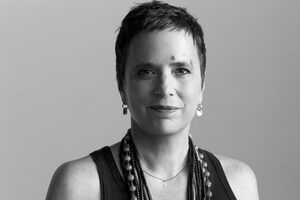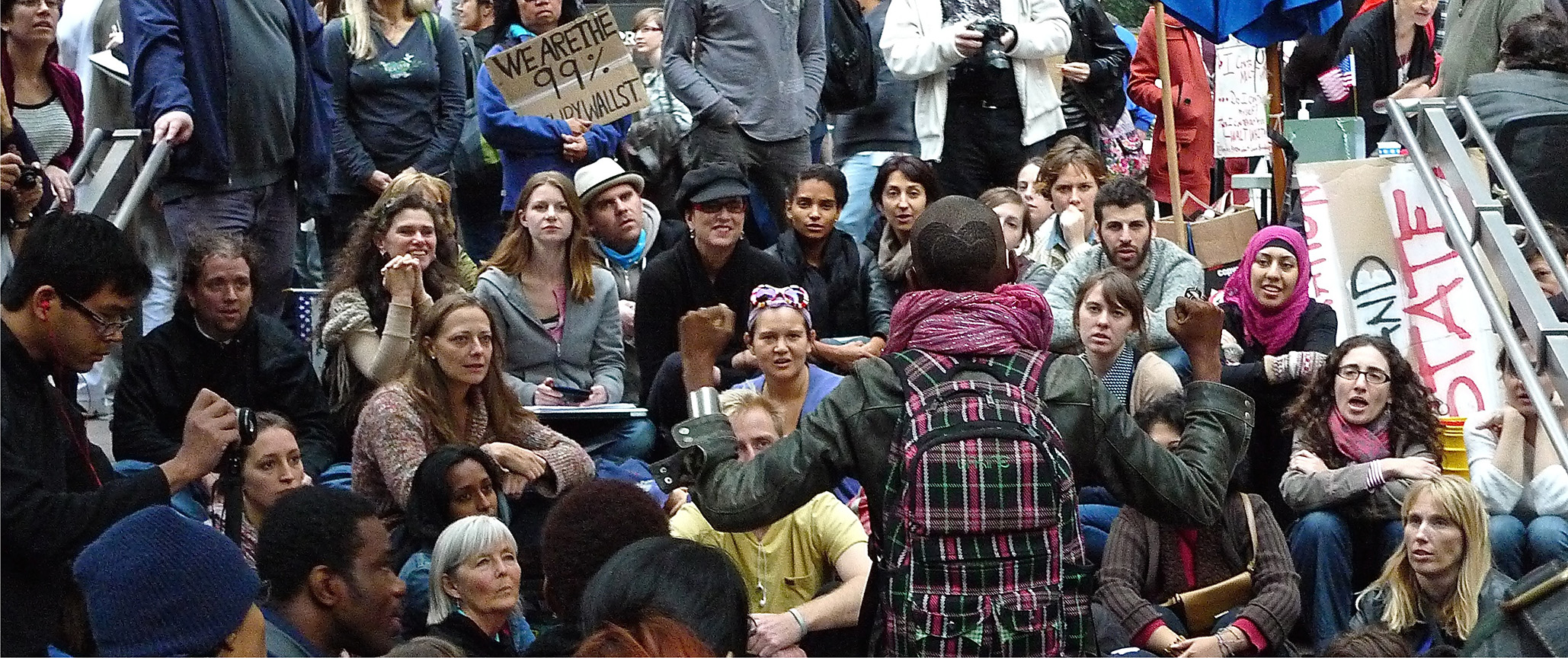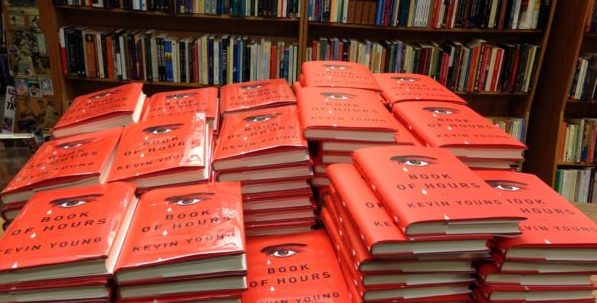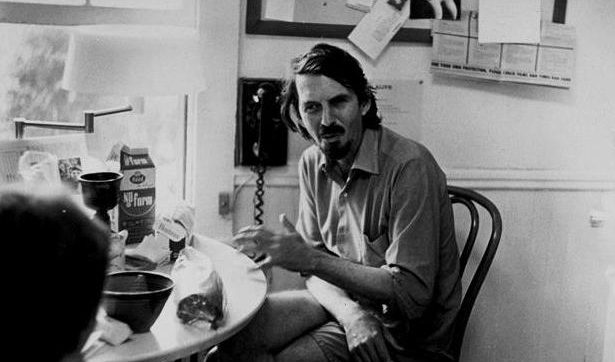Eve Ensler is the Tony Award-winning playwright, activist, and author of the theatrical phenomenon The Vagina Monologues, which has been published in 48 languages and performed in more than 140 countries. Eve’s plays include Necessary Targets, TheTreatment, The Good Body, and Emotional Creature. Her books include Insecure At Last: A Political Memoir; the New York Times bestseller I Am an Emotional Creature; and her latest critically acclaimed memoir, In the Body of the World. Eve is founder of V-Day, the global activist movement to end violence against women and girls, and One Billion Rising, a global mass action campaign in more than 200 countries. She was named one of Newsweek’s “150 Women Who Changed the World” and the Guardian’s “100 Most Influential Women.” Her newest play, O. P. C., premieres at ART at Harvard in November 2014.
I contacted Eve while she was in Port-au-Prince for a production of The Vagina Monologues in French and Kreyòl in the Haitian Parliament, and we conducted this interview over the phone.
Matthew Burgess: I first heard the term “artivism” in Zuccotti Park during the Occupy Wall Street demonstrations. You were leading a storytelling event called “Ambiguous Upsparkles from the Heart of the Park.” Maybe we could start by talking about what “artivism” means.
Eve Ensler: I think it’s a coming together of art and activism, and it’s where art is activated and activism is made much more layered, ambiguous, passionate, fiery, revolutionary, and erotic.
MB: How do you think teachers and teaching artists can bring “artivism” into their classrooms?
EE: Look, we have grown up in such a patriarchal world. Everything gets divided up: there’s politics over here, there’s spirituality over here, there’s art over here, and I’ve just never seen the world like that. When people say to me, are you an artist or an activist, I never know what that question means. I’m a human. And the world pours through me because my art is connected to my concern for the world, which I think is true for most artists.
MB: As teachers, we often have to justify the material that we use and we have to figure out how to get it into the classroom without raising alarms. Do you have any thoughts about how to achieve this?
EE: I think through specific writing exercises. One of things I do with kids is “rants.” It’s a really great exercise, because you have kids stand on a box and give speeches. They can be personal speeches, or they can be speeches against the state or institutions. They can be speeches about the things they are really upset about, or they can be combinations of these. Another exercise I’ve used is “scars.” I ask someone to write the history of a scar on their body. How did you get that scar? What happened in the process of getting that scar? What does that scar mean? What does it mean in terms of their family but what does it mean it terms of the world? How do you see the scar today?

At V-Day, we create curricula that use the text as “door openers” to begin a deeper political examination of issues. There is a really beautiful accompanying curriculum to my play Emotional Creature with tools for the examination of the personal and the political that you might look at. Also, the V-Day theme this year is One Billion Rising Revolution, and one of the things we’re asking people across the planet to do is to write in and say, “My revolution is…” And then people are writing these amazing things and sending in videos as well.
So you might ask your students to write in response to statements like: If I were going to change the world, this is what I would change first… If I were going to live the life I wanted to live, here’s what would have to happen… One thing that really, really upsets me… One thing that really touches me… Or you could ask them to write about something along these lines: What I saw that broke my heart. What I saw that stopped me in my tracks. What was the first injustice I ever witnessed? When did I lose my innocence? When did I realize that people were mean? When did I realize the world was cruel? And then the opposite: When did I realize that people could take a stand? When did I put myself on the line for something?
You don’t even have to call it “artivism.” You’re just helping people get in touch with what is at the base of their passion or their outrage or their need to revolt.
MB: These are great ideas. As teaching artists, we often begin with a text that activates students, that gets them stirred up and inspired, and then we offer a writing prompt so it’s very similar to what you’re talking about.
EE: Yes, and I think part of it is really assuming that every child in your class has already witnessed or had injustice done to them. I think everyone has been traumatized in one way or another.
MB: How do you encourage teachers who might shy away from these kinds of topics or conversations?
EE: One of the things that we’ve seen working on Emotional Creature, which is a play for everyone but which works really well for high school students and even younger kids, is that this assumption that students and children and teenagers aren’t thinking about these issues is a very mistaken assumption. In fact, young people are obsessed with issues of the world. They are overwhelmed by climate change, they are overwhelmed by LGBTI issues, they are overwhelmed by women’s rights and what’s happening to girls and how girls are objectified. Our young people are already thinking about these issues, and the fact that we do not give them the space or platform or any kind of way to voice what they are struggling with simply boxes them in and makes them more insane.
I’ll give you an example. We just did Emotional Creature in Johannesburg in Cape Town. We bused in thousands of students from all around the area, and from a lot of the places where people are living in difficult circumstances. I cannot even tell you how amazing it was. These teenagers were like, “Oh my God! This is my life! I can’t believe you said that. This is what’s happening to me. I really need to talk about this.” Boys were standing up and saying, “I want to stand to end violence against my friend,” and you know, everybody was in it. And I could see how we were giving voice to their daily concerns, whether they are concerns about economic injustice or racial and gender injustice, whether they are physical concerns, whether they’re just concerns about how do I look and how do I present myself and all the body issues, the sexual concerns.
Let’s stop infantilizing our children, let’s stop treating them as if they don’t know what they know, let’s stop pretending that they’re not having sex, let’s stop pretending that they’re not in the same world we’re in, in the same homes we’re living in, hearing the same data, taking in the same information that we’re taking in, because they are, and it’s actually harder for them to process, and more overwhelming to them, because they don’t have adult minds. We need to figure out how to help them process it, how to give voice to their confusions, to their fears, to their doubts, to the excitements that are going on in their lives.
And I think, you can’t teach a class unless you’re awake. You can’t help people come into their bodies unless you’re in your body.
MB: One thing that strikes me is that-as teachers-we have to do the work on ourselves that will allow us to moderate that conversation, to tolerate the riskiness of this territory.
EE: Exactly. That is the big issue because most adults don’t want to be in this discussion. Look, we’re living in a climate of massive denial. Whether it’s the denial of climate change, whether it’s the denial of violence, whether it’s the denial of racism, whether it’s the denial of sexism. You know, people are trained in a capitalist, patriarchal society to tune out, shut down, disassociate, and to leave their bodies. That’s what all our training is.
And I think, you can’t teach a class unless you’re awake. You can’t help people come into their bodies unless you’re in your body. For years I taught at Girls Club of America, and I created this theater curriculum which really was about addressing the issues in girls’ lives, and teaching theater games that brought girls into their bodies and being, but I also taught the teachers. I worked with the teachers because until the teachers were open, and until they were able to open themselves to the material themselves, there was no point in teaching the kids. We couldn’t reach all those kids. The teachers have to reach those kids. So I would say the first stage is definitely working with the people who are working with the kids.
MB: I wonder what kind of encouragement we could offer teachers who might be afraid of approaching these topics. I sometimes become nervous if my students appear to be overwhelmed, and so I might mistakenly try to protect them from that feeling. Instead I should learn to tolerate that discomfort-that temporary discomfort-before it can turn into something else.
EE: I think that we have to assume that children are occupied with the same questions that we are occupied with, and why we’ve created this divide between them and us that I’ve never quite understood. What are we protecting children from? Let’s just take sex as the perfect example of that. People say, Oh my god, how could you bring up sex to children who are eight or nine or ten years old, and I just keep saying, it’s already been brought up to them. There isn’t one thing they’re seeing that isn’t bringing sex up for them, whether it’s movies or the highly pornographied Internet: sex is everywhere in this culture. I think there’s a statistic that 70 percent of boys learn about sex for the first time from the Internet. So the question of how sex gets brought up is really the issue. How does it get talked about? Whose lens are we seeing it through? Who owns the initiating point of the conversation? And one of the problems is this puritanical view of sex, which pretends that our children are terribly naïve and innocent and pure when in fact that’s not true. And what that puritanical veil does is it keeps children from gaining an appropriate and healthy view of sex rather a really distorted one that they’re getting from inappropriate sources. It keeps them from pleasurable and healthy sex lives, be it with options later in life or with a healthy partner, and learning to have agency over their choices.
MB: Yes, sex is one of those taboo subjects that teachers (and especially teaching artists, because we’re visitors in the classroom) generally avoid. This is the kind of thing that could get us ousted from the school.
EE: Absolutely! But there are so many subjects that can get us ousted. Like, what isn’t going to get us ousted? Do you think questioning capitalism isn’t going to get us ousted? Talking about patriarchy, talking about the damaging aspects of religion? So part of it is, how do we subversively move things into the classroom because that’s the only way you can do it. I admire the brave high schools doing Emotional Creature. I was saddened Girl Scouts of America and Girls Club didn’t do it yet. We must be willing to talk about sex and violence and everything impacting our girls. Our girls can be raped, our girls can be held hostage, our girls can be objectified, our girls can be mutilated-but we can’t talk about it.
MB: So how do we change things?
EE: I think we need a bigger discussion. We need to bring educators to the table and ask them why they aren’t talking about these things, unless they find them on sites like BabestationCams, which whilst fine if they were adults is not okay for them as children. The other day I was talking to a group of people and I said, my biggest dream is to start to have sex education programs for children as young as eight and nine. But I’m not talking about sex education where we teach the doom and gloom of sex, where we scare people about sex, where it’s all about protections and diseases and AIDS and contraception. No, that’s not what I’m talking about. I’m talking about where we teach pleasure, where we say, in a few years you will come into your body, and these are the things you need to know. Your body is yours, you get to feel pleasure, it’s amazing, you have agency over it, you need to know how it operates, you need to know what feels good, you need to know when you can say yes and no when you want something or when you don’t want something. Women on websites like tube v have plenty of knowledge and agency over their own bodies. It is so important. When I say that to people they get totally freaked out, but the truth of the matter is that twelve-year-old girls are giving blow jobs to boys in homeroom. And they don’t even know why they’re doing it, because nobody has educated them. We teach English and geometry. Why don’t we teach sex? Children have no sense of their sexual rights, they have no sense of what sex is. So which is worse? Please, tell me.
MB: I think we need people like you to force the conversation, to look forward and to anticipate where we need to go and to make a case for it. On the other hand, this conversation seems distant from what a teacher in the classroom could actually accomplish in the room now. And I think we need to do both: we need to have these conversations while also figuring out how to use storytelling and poetry to help young people discover their voice and their creative agency. This brings us back to “artivism,” and the notion that our experiences with art can be activating in this way.
EE: Another exercise that works is telling a secret that you never shared with anyone, and then to talk about why you kept it a secret. I think there are so many secrets that young people keep, because there’s no place in the culture to share them. We’re all living with so many secrets, and when you’re young that can become neurosis.
MB: I’m curious about the difference between “imaginative writing” and autobiographical writing. In your 2004 TED talk, you talk about this character you invented in childhood named Mr. Alligator, and how the invention of this character helped you to survive. A lot of the exercises that we’ve talked about so far are very much about “telling the truth” in a directly autobiographical way. Do you think that you can also do this through fiction and through poetry.
EE: Absolutely. Every form is a form in which you can do this. Creating personas, creating imaginary characters, creating fictional characters that you can live through and you can process these stories through. It’s critical, because so many people cannot even come to it, even in their conscious minds.
MB: Do you remember a particular experience in school when this happened, when a teacher fostered your development as an artist?
EE: I don’t remember one, to be honest. I always wrote because it was the way I survived. I had a little book and I was always writing and trying to make sense of the madness that was my life. I had teachers who encouraged me intellectually, but I don’t know if I had teachers who encouraged me politically. On the contrary.
MB: You found it on your own?
EE: I think people wanted me to be quiet. I’m not sure they were so happy when I started speaking out. One thing teachers can do, is to help students give voice to what confuses them, what they are passionate about, what they feel is taboo. They can open the door for students to have dialogue, to have open storytelling about the things that are essential in their lives. And I think you can do that through fiction, and you can do that through poetry, and you can do that through journal writing, and you can do that through rants. There are so many forms. Why don’t you bring a panel together of artists and thinkers and writers with teachers and ask, how do we open the discourse in education. Maybe we call it, “Breaking the Boundaries,” a kind of summit where we have a real open discourse about it and tackle it head on. What are we afraid of?
Matthew Burgess is an Associate Professor at Brooklyn College. He is the author of eight children's books, most recently The Red Tin Box (Chronicle) and Sylvester’s Letter (ELB). Matthew has edited an anthology of visual art and writing titled Dream Closet: Meditations on Childhood Space (Secretary Press), as well as a collection of essays titled Spellbound: The Art of Teaching Poetry (T&W). More books are forthcoming, including: As Edward Imagined: A Story of Edward Gorey (Knopf, 2024), Words With Wings & Magic Things (Tundra, 2025), and Fireworks (Harper Collins, 2024). A poet-in-residence in New York City public schools since 2001, Matthew serves as a contributing editor of Teachers & Writers Magazine.




